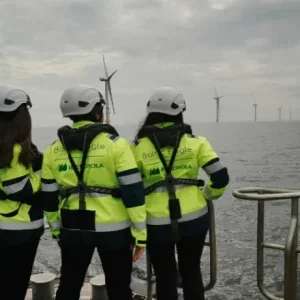 The company said that it will start taking steps to stop operations of the floating production, storage and offloading vessel (FPSO) and associated production facilities in the region. Husky’s decision is in accordance with a suspension order from the Canada-Newfoundland and Labrador Offshore Petroleum Board (C-NLOPB).
The company said that it will start taking steps to stop operations of the floating production, storage and offloading vessel (FPSO) and associated production facilities in the region. Husky’s decision is in accordance with a suspension order from the Canada-Newfoundland and Labrador Offshore Petroleum Board (C-NLOPB).
The incident in question took place on 29 March 2017 when an iceberg came close to the SeaRose FPSO, just 463m away from the vessel, inside an ice exclusion zone.
According to C-NLOPB, the vessel should have been disconnected at that time and sailed away to avoid the iceberg as per the Husky’s Ice Management Plan (IMP) filed with it. However, the steps were not followed by the operators of the FPSO.
C-NLOPB revealed that personnel on board were at one point told to muster and prepare for taking impact from the possible collision with the iceberg.
Fortunately, the iceberg did not collide with the vessel, thereby giving respite to the 84 personnel on the FPSO and preventing a possible oil spill from more than 340,000 barrels of crude oil on board.
The incident did not result in any injuries, environmental damage or in any damage to the FPSO.
Husky Energy CEO Rob Peabody said: “We could have and should have responded differently according to the pre-existing plan, and we will learn from this incident. We will work with the C-NLOPB and take the actions necessary to satisfy the regulator.”
Husky stated that it will carry out all steps required to comply with the regulator’s directives. It claimed that various measures have already been implemented to improve its ice management operations further.
C-NLOPB stated: “The C-NLOPB has determined there are serious issues respecting Husky’s ice management, management systems and organizational decision-making.
“Based on the enquiry’s preliminary findings, the C-NLOPB lacks full confidence that appropriate action will be taken by the Operator during an emergency situation.”
Image: SeaRose FPSO vessel. Photo: courtesy of Husky Energy Inc.






